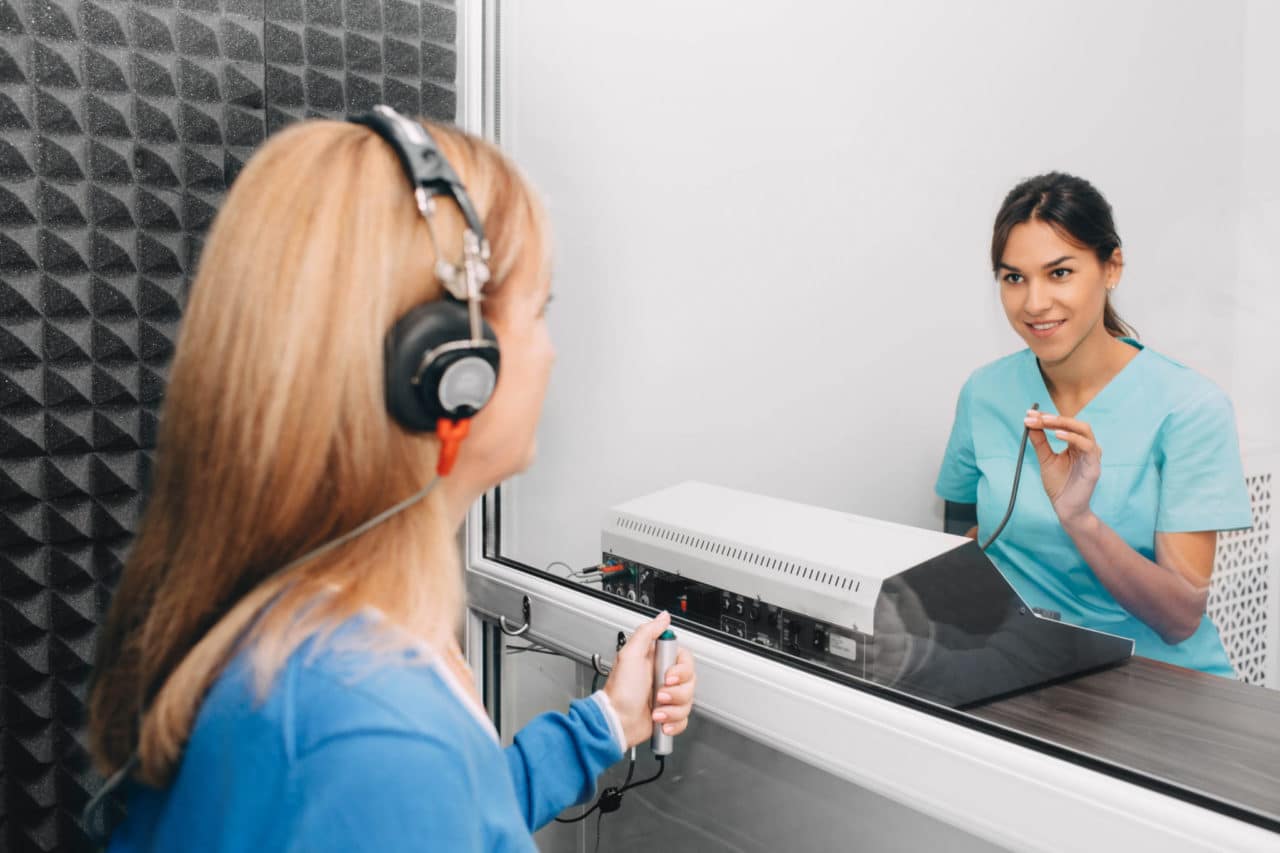Hearing Test: What You Can Find Online to Know More About Your Hearing Status
Although we rarely think about it this way, each person’s inability to hear a specific frequency range (high or low) is unique. Because of its slow and constant course, hearing loss is frequently invisible.
Despite popular perception, this is a myth. Getting a baseline hearing test and yearly follow-up tests can help you detect hearing loss early when it can be treated most successfully with the right type of hearing aid and the optimum amount of amplification.
A full hearing evaluation can also tell you if your hearing loss is conductive, sensorineural, or both. It can also tell you if you would benefit most from medical treatment, hearing aids, bone conduction devices, or an implantable electronic cochlear device.
The top reasons to get a hearing test
All individuals over 25 should get their ears checked at least once every three years as part of their standard preventative health care routine. A hearing test is easy to schedule and administer, so it’s a good idea to do so if you have any concerns about your hearing or want to establish a starting point for future comparisons. If you still need convincing, here are some health reasons why you should check your hearing regularly:
Determine the cause of your hearing loss.
The primary purpose of a hearing test is to evaluate your hearing, though it may also check for other ear-related issues. Whether you know you have a hearing problem or you feel it’s time for a check-up, a hearing test can help determine the extent of any impairment you may be experiencing.
There are multiple sections to the test, and each one may be somewhat modified based on who is doing it. In doing so, it will gauge your hearing abilities and the range of sounds to which you have access. This will help diagnose any hearing loss you may be experiencing.
The test is quick and painless.
Many people feel anxious about seeking medical attention of any form. Many people are terrified of taking tests and exams, and it’s natural to be nervous about finding the results. Don’t be nervous about needing a hearing evaluation. These examinations don’t hurt or take very long. Your audiologist will do all in their power to make sure you are comfortable and at ease throughout the entire evaluation procedure.
Listening and answering questions will be used to evaluate your hearing abilities. Your audiologist will be better able to assist you in choosing among available treatment options based on the hearing test results. Hearing aids can make a difference in your quality of life if you suffer from hearing loss.
Enhance your living conditions.
When you can finally hear things clearly, life becomes much more joyful. Once your hearing is under control, even if it’s just slightly impaired, you won’t believe the difference. For an audiologist to fix your hearing loss, you must first identify the specific nature of your condition with a hearing test. This usually entails a customised hearing aid to address your unique hearing loss.
Due to health concerns
There are several possible causes of hearing impairment beyond simple aging. A hearing exam is essential if you work in a noisy setting. Many diseases and disorders, such as diabetes and cardiovascular disease, can cause hearing loss. Hearing loss could be the cause of tinnitus (ringing in the ears). A temporary loss of hearing is treatable by an audiologist and can be brought on by things like ear infections or impacted earwax. Hearing loss is another adverse effect of some drugs.
Determine Your Optimal Hearing Level
No matter your age, a hearing exam is helpful for establishing a foundational level of hearing. This will give you a starting point for future hearing tests and a more objective way to figure out if you are losing your hearing.
Knowing your hearing’s starting point is essential at any age, but it becomes especially crucial as you grow older so that any changes may be detected quickly. If you’re 55 or older, it’s essential to get your hearing regularly tested to determine if you need a hearing aid.
The Efficacy of Online Hearing Tests
Do you want to know how well you can hear, but you’re not ready to make an appointment with an audiologist? It is imperative that you take the time to have your hearing checked as part of your efforts to improve your hearing health. It’s natural to look for guidance online if you’re feeling uncertain. To remove obstacles to service access, several clinics now offer hearing exams online.
But how helpful and trustworthy are these self-administered hearing tests? Do internet hearing tests fare as well as those administered by an audiologist? Here we will discuss the pros and cons of taking a hearing test over the internet.
The positive aspects of online hearing tests:
- Convenient and effortless
- Generally free
- It increases accessibility for those who might otherwise have trouble obtaining a hearing test.
- If hearing problems could be confirmed at home with an online test, people might go see a hearing specialist sooner.
- It may attract younger people with hearing loss who might not have visited a hearing clinic otherwise.
The downsides of online hearing tests:
- The outcomes have the potential to be misconstrued.
- It is not possible to determine the root cause of any hearing loss.
- It cannot provide individualised treatment or management advice based on your results.
- Having earbuds, speakers, or headphones that go over the ears is more than just a requirement.
When would it be best to take a hearing test online?
Improving one’s hearing can positively affect one’s autonomy and health. According to studies, many people with hearing loss don’t acknowledge their problem because they are ashamed to discuss it or because it becomes a source of speculation in their social and professional relationships. Instead of getting a full clinical hearing test from an audiologist, many people opt for less invasive self-diagnostic techniques.
A hearing test online can be useful for screening and referring people with hearing loss to a clinic for additional testing by audiologists, who can then diagnose the problem, make treatment and management recommendations, and track the patient’s progress.
Role of hearing tests
Hearing loss can be diagnosed in as little as five minutes with an online hearing test that evaluates how well you hear various sounds. After collecting some basic information from you, an online hearing test will ask you how you feel your hearing performs under various scenarios.
After that, we’ll do a test of your hearing abilities. We strongly suggest taking the test in a calm, distraction-free environment and advising the use of headphones for listening to sounds while answering questions about them. You will be asked to perform the examination once more, this time using your other ear.
Your free hearing test results will show where on a scale from severe loss to normal hearing, you fall. With this data, your audiologist can order the most thorough hearing tests possible. You will require a treatment plan tailored to your needs once the cause, severity, and presentation of your hearing loss have been identified.
Conclusion
Audiologists are trained to diagnose and treat hearing loss, regardless of its source. Your audiologist is also available for consultation and discussion of any issues you may be having with your hearing loss. If you haven’t had your hearing checked in a while, you should probably make an appointment with an audiologist.




